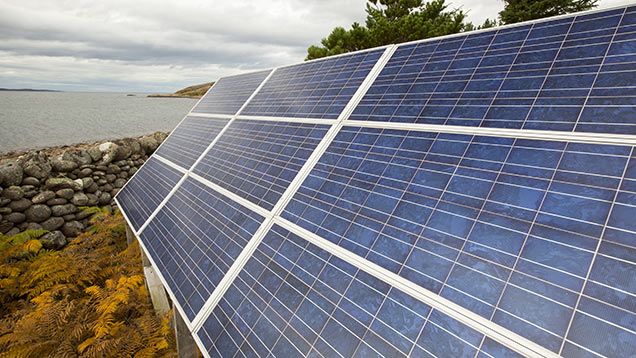UK slammed for cutting renewable energy support
 © Global Warming Images/REX
© Global Warming Images/REX
The United Nation’s chief environment scientist has criticised the government for recent cuts in support for the renewable energy sector.
Professor Jacquie McGlade said that the UK was shifting away from the production of clean energy as the rest of the world rushed towards it.
She told BBC News that cuts in renewables subsidies, coupled with tax breaks for oil and gas, sent the wrong signal in the run-up to a climate change summit in Paris in December.
See also: Calls for government to pull back on drastic renewables cuts
“What I am seeing worldwide is a move very much towards investment in renewable energy. To counterbalance that you see the withdrawal of subsidies and tax breaks for fossil fuels.
“What’s disappointing is when we see countries such as the United Kingdom, that have really been in the lead in terms of getting its renewable energy up and going, withdrawing subsidies and enhacing the fossil fuel industry.”
‘Bonfire of policies’ leave jobs and investment at risk
Earlier this month the Renewable Energy Association accused the government of having implemented a “bonfire of policies” since the general election that had left the UK’s renewables industry under threat.
It said a series of announcements about cuts in support had put jobs, expertise and investment all at risk.
Government says it is committed to renewables
The Department for Energy and Climate Change (Decc) maintains the cuts are necessary to keep spending on renewables schemes in check.
As part of a foreword to a report published on 15 October, Decc secretary Amber Rudd said the government remained committed to meeting its targets in reducing carbon emissions, but this would be done as “cheaply as possible”.
Rush to fracking
In contrast to the “bonfire” of support for renewables, the UK government has been criticised for a rush towards fracking without allowing parliament enough time to properly consider legislation.
The Infrastructure Act, brought in early this year, meant farmers lost the right to know if their land was being fracked, while the outright ban on fracking in protected areas such as National Parks and Areas of Outstanding Natural Beauty was removed.
